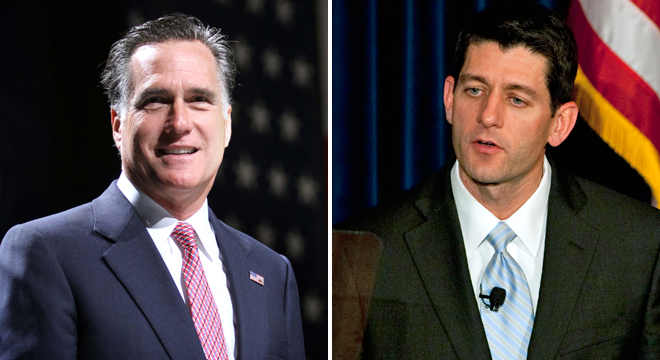With Paul Ryan as his vice presidential nominee, Mitt Romney’s central argument pushing back against critics of the House budget chief’s Medicare plan is that President Obama cut deep into Medicare under the Affordable Care Act. But Ryan’s plan includes the same cuts, which don’t target beneficiaries.
“Unlike the current president, who has cut Medicare funding by $700 billion, we will preserve and protect Medicare and Social Security,” Romney said Saturday while introducing Ryan.
The trouble with this argument — made frequently by Republicans, including Ryan himself — is that Republicans have voted overwhelmingly for Ryan’s own budget which sustains the Medicare cuts in “Obamacare.” Conservatives argue that Ryan’s plan, unlike the Affordable Care Act, doesn’t use the Medicare savings to fund additional spending.
Talking points circulated by the Romney campaign Saturday similarly instruct surrogates to make the “Obama cut Medicare” argument to blunt voters’ fears over Ryan’s Medicare plan.
“No. President Obama is the one who should be worried, because he has cut $700 BILLION from Medicare to pay for Obamacare, and put in place a panel of Washington bureaucrats to make decisions about what kind of care seniors will receive under Medicare,” the memo reads. “Mitt Romney and Paul Ryan have a bipartisan plan to strengthen Medicare by giving future seniors the choice between traditional Medicare and a variety of private plans.”
The nonpartisan Congressional Budget Office found last month that the Medicare provisions in the health care law would save $700 billion over a decade and extend the life of Medicare.
The cuts don’t target beneficiaries — they come largely in the form of reduced payments to hospitals, discounts on Medicaid prescription drugs, and pay cuts to private insurers under Medicare Advantage. The hospital and drug industries endorsed the law despite the cuts.
The Ryan plan, by contrast, would transform Medicare into a structure that rolls back the coverage guarantee for the elderly. In 10 years, the program would be replaced with a subsidy that beneficiaries can use to purchase insurance from a menu of private plans and a government option. CBO projects that in some cases, the subsidy won’t be sufficient to cover seniors’ medical expenses.






